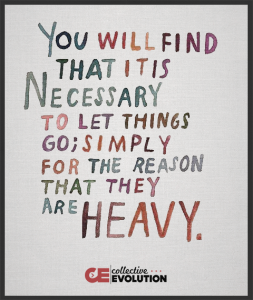I’ve been rather blue and agitated lately. Since this is not my normal demeanor when I experience such alien feelings I immediately search for the cause. It could be the sudden change in the weather. The last few days of August here have been mostly gray, often rainy and windy. It could be the unexpected power outages. Not being able to access electricity makes me cranky. It could be the uncertainty that is my life these days, particularly around our finances. It could be any of these things but on reflection I think I’ve uncovered something more sinister, more occult. Stephen Colbert might have summed it up using one of his signature terms: “truthiness,” which was Merriam-Webster’s Word of the Year 2006. In a nutshell, truthiness is “the quality of preferring concepts or facts one wishes to be true, rather than concepts or facts known to be true.”
Actually it is not that I suffer from “truthiness.” In fact, I think we are all suffering from a failure to know–without a doubt–what are “concepts or facts known to be true.” What we are dealing with is an inability to even decipher what is truthiness and what is truth. In light of the conflicting “information” that comes at us daily via the media and the internet, I must confess that I am compelled to ask with Pilate, “What is truth?” We are dependent on others for so much of our “truth” as is it impossible to “know” and investigate everything. I try to be informed, well-read, and open-minded. I try to use common sense (which I realize is not so common). But as soon as I believe that what I believe is the truth, someone comes up with a convincing-sounding argument for the other side. And I begin to question my thinking. Do I indeed dabble in truthiness without knowing it?
I don’t mean to imply that I am like leaf or a reed, easily swayed by the direction of the wind. I don’t immediately jump to the opposite argument every time my “truth” is questioned. In fact the opposite might be true especially if it is a “truth” that I have long held to be so. But when the opposite argument seems reasoned and well-thought-out it can shake me to my core, cause me to question sources that I had thought to be trustworthy, and, yes, it can depress me. The depression arises out of a feeling of helplessness and helplessness arises out of uncertainty. I want to know that what I know as truth is truth. This is not to say that I’m inflexible. I am definitely open to new, alternative ideas and have been known to change my way of thinking to a more enlightened one. But what does one do when one feels the need to “know” what is right and to act on that?
Either the world’s climate is changing and the experts in the field who know these things are telling us the truth or nothing significant is happening and the “97% of scientists agree” is a fabricated number. Either vaccinations are necessary to prevent the spread of disease or the pharmaceutical companies are scamming us and those shots we’ve come to depend on are actually detrimental. Either GMOs are perfectly safe and necessary in order to feed a burgeoning world or they are contributing to the decimation of our agricultural system and making us sicker. The problem is that many times either side can make compelling arguments, cite convincing statistics and quote well-respected experts; so then how does one “know” what is right and what is a smokescreen?
Perhaps the larger issue is that things are hardly ever so black-and-white. Gray is the color of most issues, gray like the sky outside my window. So for now I will retreat to what I know, that there are sparrows outside on the deck railing, resting from dining in the bird feeder, perching on the bird bath to sip water or wash the dust off their wings, flying as a group to the safety of the neighbor’s tree. I will take comfort for now in what little I can really “know.”
